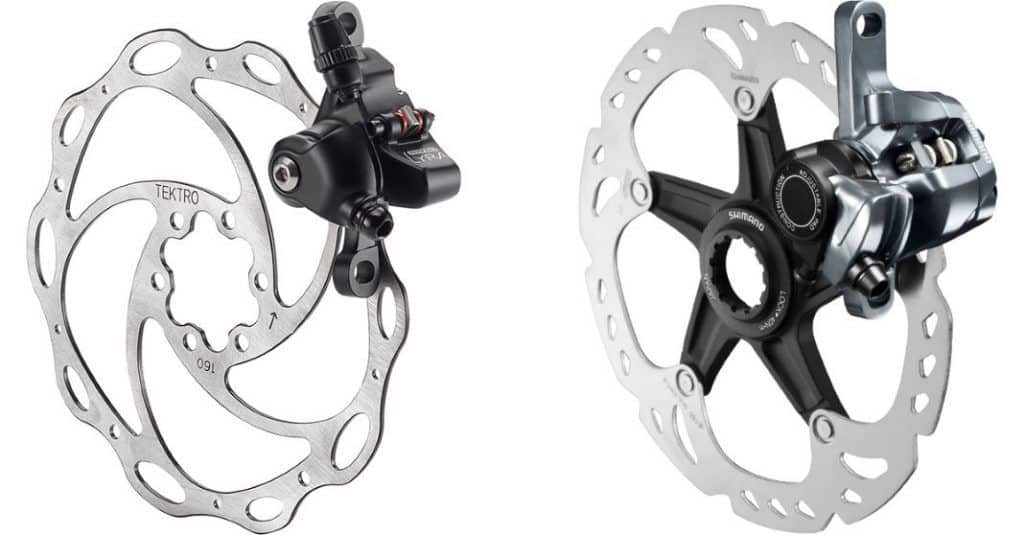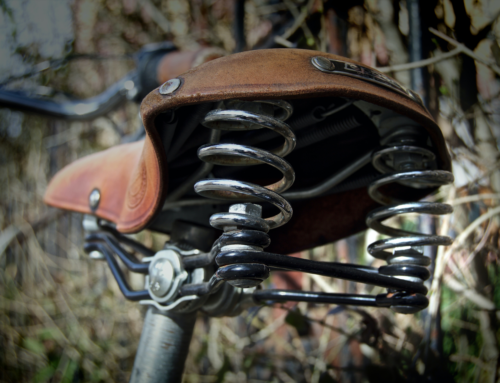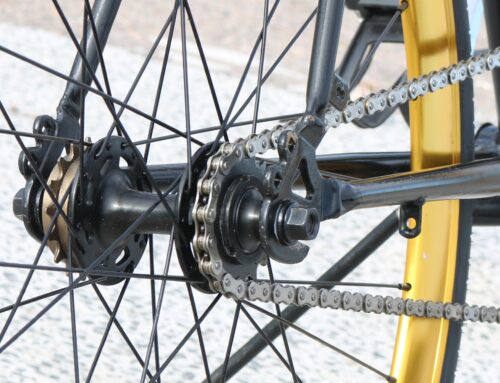When buying a new or second-hand bike with disc brakes, sometimes we do not pay attention to the system of actuation of these. Are they mechanical brakes or are they hydraulic brakes? However, this aspect has a great importance in the behavior of braking.
Disc brakes have already become the reference standard for all types of bicycles, regardless of the modality practiced: mountain bike, road, cyclocross or gravel).
Therefore, in your future purchase, it is important to know the differences between an assembly with hydraulic or mechanical disc brakes, since each of them has its own characteristics that end up affecting issues such as performance or maintenance.
It is therefore important to know the differences between hydraulic and mechanical disc brake assemblies when making a future purchase, as each has its own characteristics that affect issues such as performance and maintenance.
key differences between hydraulic and mechanical brakes
There are numerous differences between hydraulic disc brakes and bicycle mechanics. Below we show those that we consider to have a greater relevance when choosing one system or another.
Drive
Both systems have the same essential parts: lever, hose or cable casing, caliper, pads and disc. But they differ in the technology used to operate them.
In the mechanical brake, the force applied to the lever is transferred to one of the pads via a brake cable under tension. In the hydraulic brake, the force exerted by the rider on the lever is transferred to the caliper pistons – and from there to the two pads – by means of a fluid. Due to the pressure exerted by the fluid, the pads will eventually move to squeeze the disc and thus slow the movement of the wheel.
Braking behaviour
The use of a cable or fluid for the transfer of energy through the braking circuit substantially changes the type of braking.
A hydraulic disc brake will offer a more linear and progressive braking behaviour. The wheels will not lock suddenly, reducing the risk of a mishap or fall and favouring better control and handling of the bike.
A mechanical disc brake, on the other hand, provides a more abrupt, less linear type of braking. The braking power may be greater at the first moment of braking, but the cyclist has less margin to modulate the braking energy according to his needs.
On steep descents, for example, mechanical braking is less effective than hydraulic braking.
Wet performance
Related to performance, another major difference between hydraulic and mechanical brakes is their level of effectiveness in wet conditions. A situation where good brakes are a must.
In wet or slippery conditions, it is better to have hydraulic disc brakes, and not only because of their greater braking progressiveness.
The circuit of a hydraulic disc brake is completely closed and more watertight.
In mechanical disc brakes, the cable is exposed at its connection to the caliper. Thus, water is more likely to come into contact, enter the circuit and modify its operation, reducing braking power and modulation.
Brake adjustment
Hydraulic disc brakes are self-adjusting in power, modulation, etc., thanks to the properties of the brake fluid, which is responsible for their operation.
Remember that the adjustment of the mechanical disc brake is made on both pads, but separately. Only one pad receives the force from the lever through the cable, while the other is fixed and will require its own adjustment to be properly aligned with the other.
Disc brake maintenance
Hydraulic brakes are much easier to maintain and are more durable than mechanical brakes.
It is sufficient to check the system annually and bleed the circuit, changing the brake fluid for a new one. This is a slightly more thorough operation, but it is rare and will increase the brake’s durability.
Mechanical disc brakes, on the other hand, are more easily out of adjustment. They require more constant maintenance, although simple, very similar to the classic shoe brake. In addition, their durability is more limited than hydraulic brakes and the pads tend to wear out more quickly.
Hydraulic or mechanical: which brakes should I choose?
Once we know all the characteristics and differences between hydraulic and mechanical brakes for bike, it’s time to choose the most suitable one, according to your needs, level, use of the bike and available budget.
Mechanical disc brakes are suitable for novice cyclists who ride short, easy rides without too many technical sections.
On the other hand, for someone who rides regularly and has a certain level, it is more advisable to buy a bike with hydraulic disc brakes, more suitable for safely overcoming technical descents and obstacles, in the case of mountain biking or cyclocross, or descents of mountain passes in the case of road cycling.





